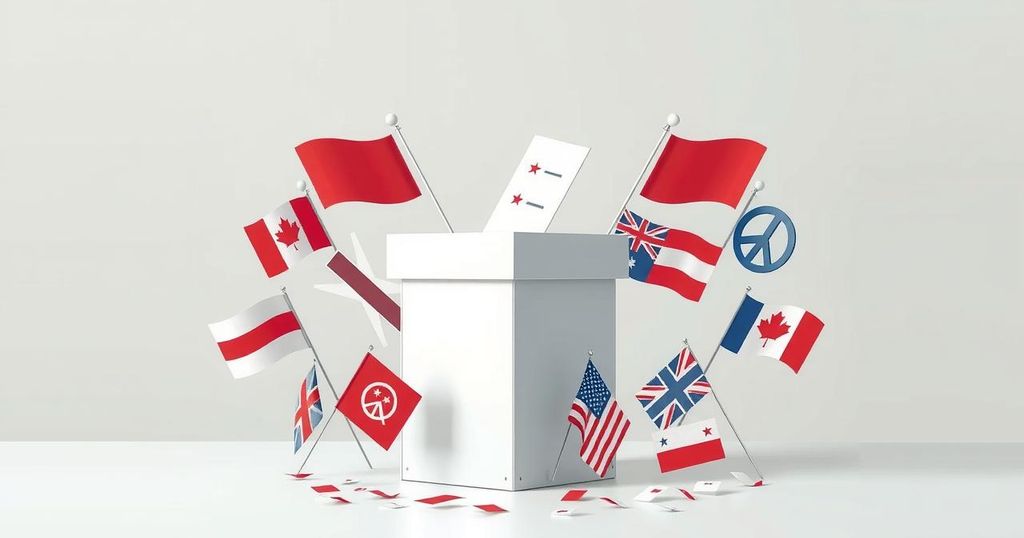Ecuador Presidential Election: Noboa Leads Gonzalez in Tight Race

Ecuador’s presidential election has resulted in a narrow lead for incumbent Daniel Noboa over challenger Luisa Gonzalez, potentially leading to a run-off. Gonzalez emerges as a formidable opponent, advocating against rising violence and economic stagnation. Both candidates reflect Ecuador’s urgent issues of security and public welfare, making the upcoming political decision crucial amid escalating challenges.
Ecuador’s incumbent President Daniel Noboa is leading in a contentious election, with a narrow margin over leftist challenger Luisa Gonzalez, forcing a likely run-off. With over 90% of ballots counted, Noboa has received approximately 44.3% of the votes, while Gonzalez follows closely at 43.8%. Despite pre-election predictions favoring Noboa, the election outcome reflects a significant challenge regarding Ecuador’s deteriorating economic stability and rising crime rates.
Gonzalez, a lawyer and single mother, declared a “great victory” to her supporters, emphasizing their achievement in indicating a strong challenge to Noboa. The election serves as a referendum on the president’s controversial security measures amid soaring violence rates, making public safety a central issue. Noboa, during his presidency, has enforced a state of emergency and deployed military forces to combat cartel-related crime, transforming Ecuador’s safety landscape significantly.
Noboa, known for his youthful leadership at 37, has relied on a robust social media strategy to connect with voters, contrasting his appealing public persona against stringent security measures. His administration has faced scrutiny regarding human rights abuses, especially with military involvement in civilian matters. Political analysts claim the current moment may represent the worst crisis in Ecuadorian democracy since its restoration decades ago.
As instability negatively impacts Ecuador’s economy, both candidates recognize the necessity for international financial assistance, particularly from the IMF. Gonzalez indicated she would welcome IMF involvement as long as it supports working families rather than imposing stringent austerity measures. Furthermore, the anticipated deportations by the US government could affect family remittances, further straining economic conditions.
Gonzalez criticized Noboa’s administration for not adequately defending its citizens against perceived injustices, asserting that respect for Ecuadorians during deportations is crucial. Both candidates are bracing for a tightly contested political environment as the full election results remain pending, with substantial public interest in their proposed paths for addressing the nation’s challenges.
The ongoing election in Ecuador is highly contentious, reflecting significant divides over economic stability, public safety, and governance. Eloquently juxtaposed, the incumbent President Daniel Noboa and challenger Luisa Gonzalez represent contrasting ideologies in addressing these national issues. With increasing violence linked to drug cartels turning Ecuador from a formerly safe nation into a perilous environment, voters face the difficult choice of continuity versus change in leadership. The election atmosphere is charged, marked by fears surrounding safety, economic downturns, and international relations, especially regarding the US.
The election results indicate a notable shift in Ecuador’s political landscape, suggesting dissatisfaction with the status quo under President Noboa. With Gonzalez’s strong challenge reflecting public concern over economic and security issues, the imminent run-off presents voters with a decisive moment. The tense backdrop of cartel violence and economic hardship highlights the critical need for strategic governance to navigate Ecuador’s ongoing crises, making this election pivotal for the country’s future aspirations.
Original Source: www.kpvi.com







